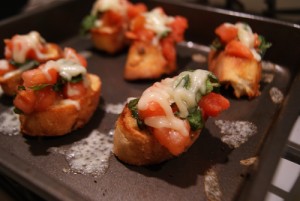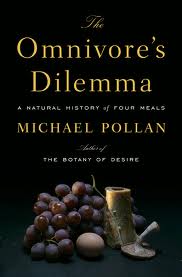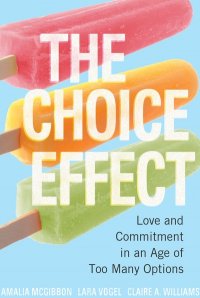What’s for Dinner?
Talk about choice. Nowadays just choosing a yogurt can be a political statement (If you haven’t watched Food Inc., do!). So I’ve always known, at a surface level, the idea of processed, genetically modified food vs. organic. Or farm-raised meat vs. wild game. I guess I never sat down and thought about it at great lengths. It’s always been…..I’m hungry so I eat. I knew I loved food, case closed. Turns out, case not closed, but case wide open. Once I started analyzing my foodways there was really no turning back.
I just started a Masters in Gastronomy at Boston University. I entered into the program with idea of widening my expertise on food and hopefully getting a gig in food writing after all was said and done. I’m only halfway through my first semester and I’ve totally changed my perspective. I cook more, I read more and best of all I feel more aware of what I put into my mouth.
My idea of food has definitely become more academic. We look at the study of food through so many lens ― anthropology, archaeology, history, gender studies and sociology. So choosing what I eat becomes so much more complex beyond the question of where it was grown or how it was processed. Why do I choose a certain food over another, when I’m sad vs. happy? What is this food’s history, does it have a cultural meaning? How accessible is it to others? So this probably sounds daunting, but there is something nice about not being so disconnected.
To get a better grasp of what I mean I strongly recommend reading The Omnivore’s Dilemma by Michael Pollen. If you’re someone who would rather remain blissfully unaware, which I understand completely, look no further because once you start thinking about food critically it’s not unlike opening Pandora’s box.
-Elyse Wood



![[del.icio.us]](../wp-content/plugins/bookmarkify/delicious.png)
![[Digg]](../wp-content/plugins/bookmarkify/digg.png)
![[Facebook]](../wp-content/plugins/bookmarkify/facebook.png)
![[Google]](../wp-content/plugins/bookmarkify/google.png)
![[Reddit]](../wp-content/plugins/bookmarkify/reddit.png)
![[Technorati]](../wp-content/plugins/bookmarkify/technorati.png)
![[Twitter]](../wp-content/plugins/bookmarkify/twitter.png)
![[Email]](../wp-content/plugins/bookmarkify/email.png)


